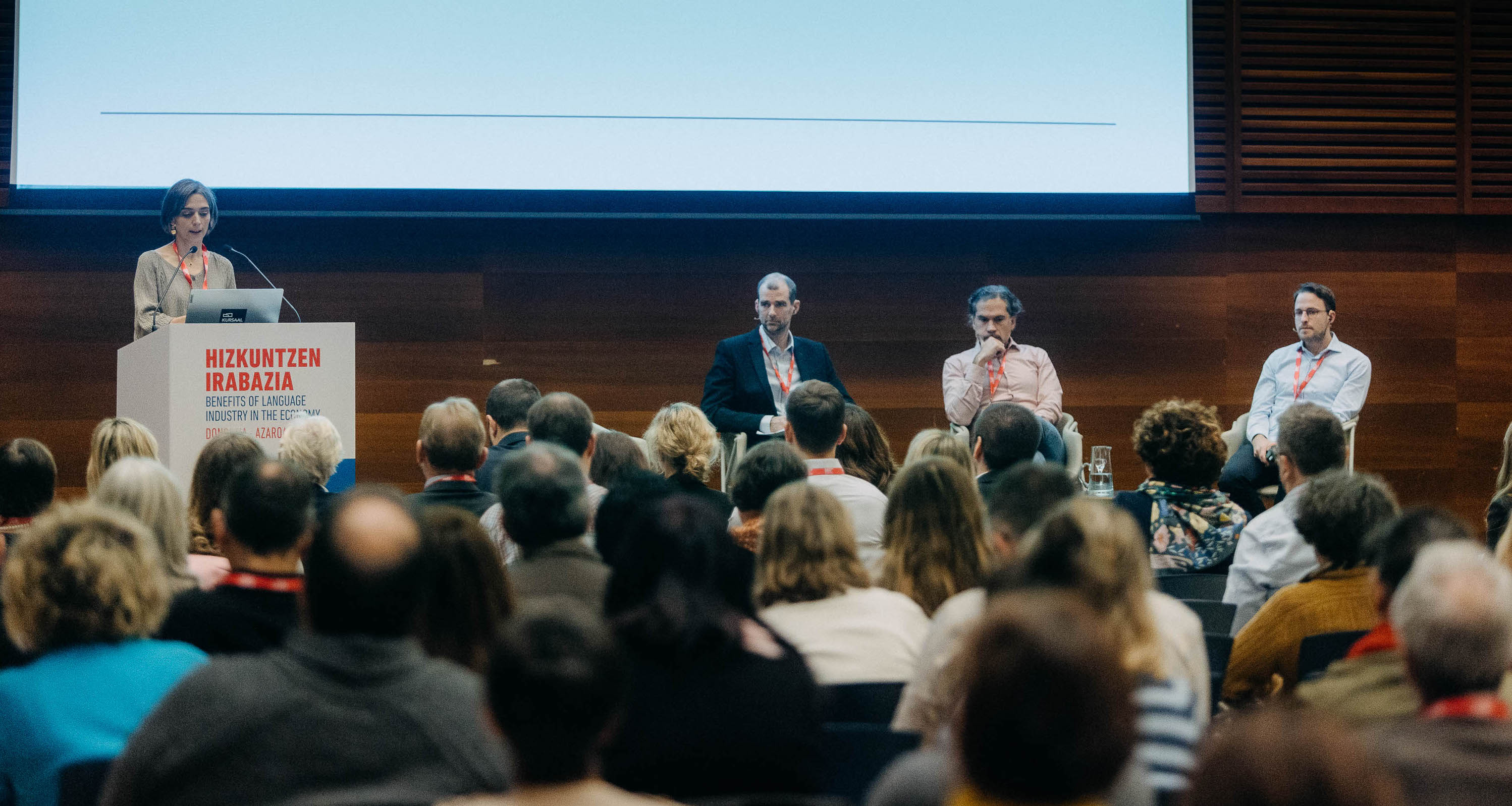
8th Forum of European Minority Regions: Exploring the Role of Minority Languages in the Digital Age
26.11.2024On 26 November, the 8th Forum of European Minority Regions kicked off at the Kursaal Congress Centre in Donostia/San Sebastián, located in the Basque Country. The event, hosted by FUEN in partnership with LANGUNE, the Basque Association of Language Industries, brings together experts, policymakers, and representatives from minority regions across Europe to discuss the links between minority languages, technology, and economic development.


The beginning of the conference featured short speeches by local and regional politicians, who emphasised the importance of minority languages for culture, identity, and regional development. Imanol Pradales Gil, President of the Basque Country, emphasised the equality of all languages, their role in shaping identity, and the universal right to express oneself in the native tongue, urging the use of digital technology to expand the reach and impact of minority languages. He also highlighted the economic contribution of the language industry, stating: “In the Basque Country, we have experience in managing multilingualism – we have an entire language industry sector: research and technology development, language training, and translation. This language sector generates a turnover of around €211.3 million and creates about 4,600 jobs. The desire to keep the Basque language alive has largely given us this infrastructure, showing that the Basque language also has an impact on the economy.”
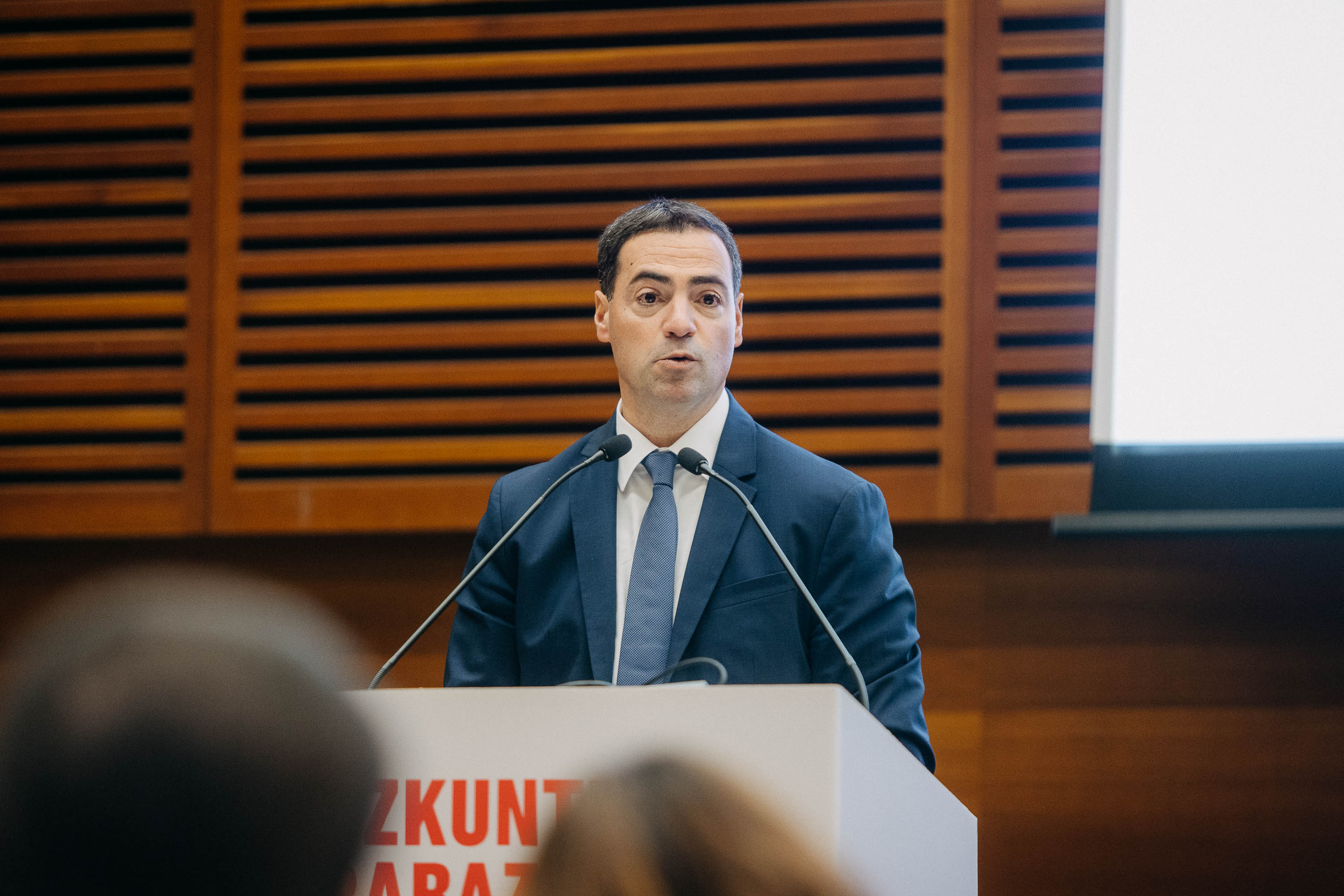
Eider Mendoza Larrañaga, President of the Basque Country’s province of Gipuzkoa, underlined the importance of ensuring that Basque remains widely used, noting its significant role in regional employment and GDP, while Donostia’s mayor, Eneko Goia Laso, called for the spreading of minority languages to keep them vibrant and alive.
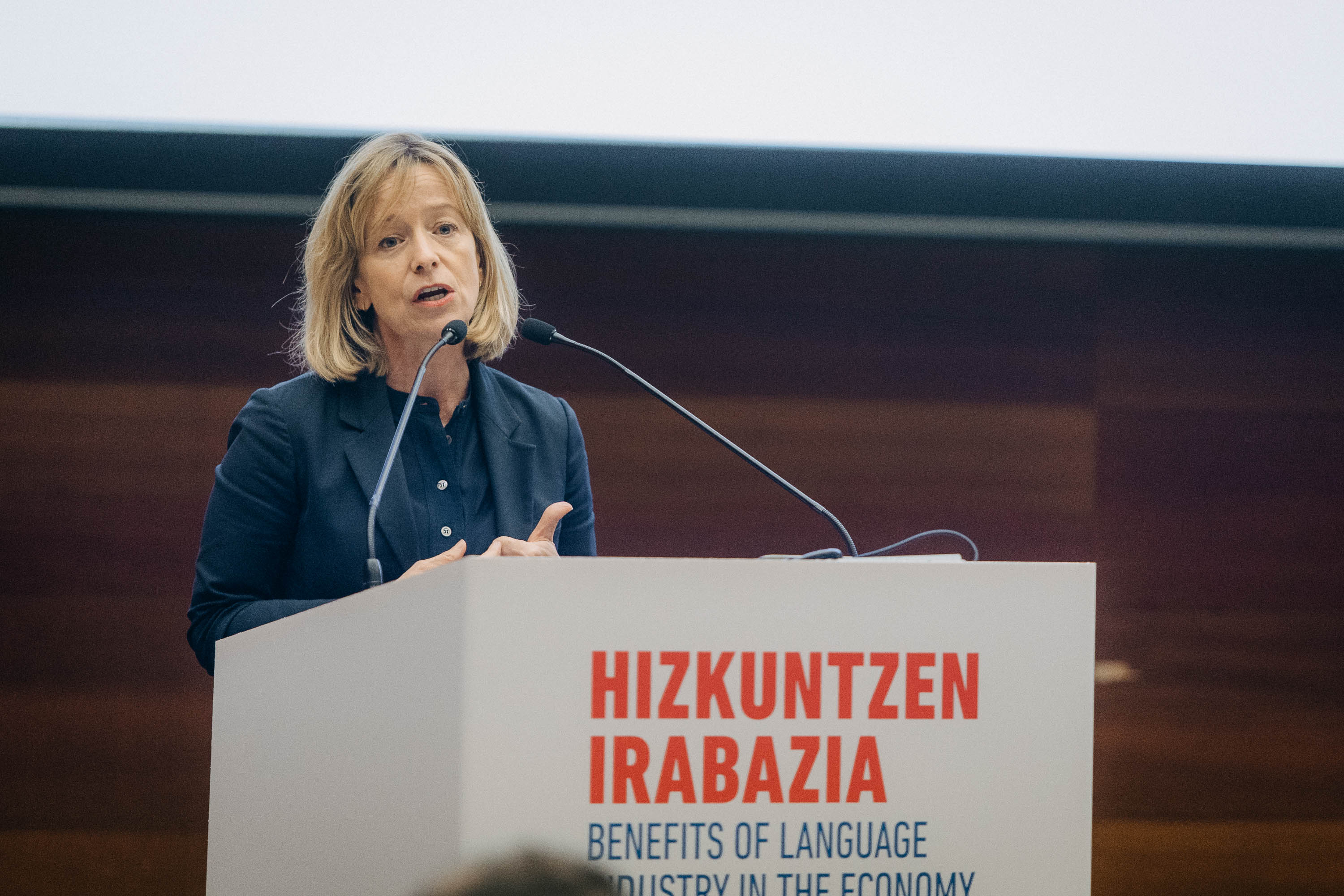

With the topic “Benefits of Language Industry in the Economy”, the conference was officially opened by FUEN Vice President Bahne Bahnsen. He emphasised the role of artificial intelligence (AI) in shaping the future of minority languages, highlighting both opportunities and challenges. He called on the participants to actively engage with AI and collaborate with each other to strengthen linguistic diversity.
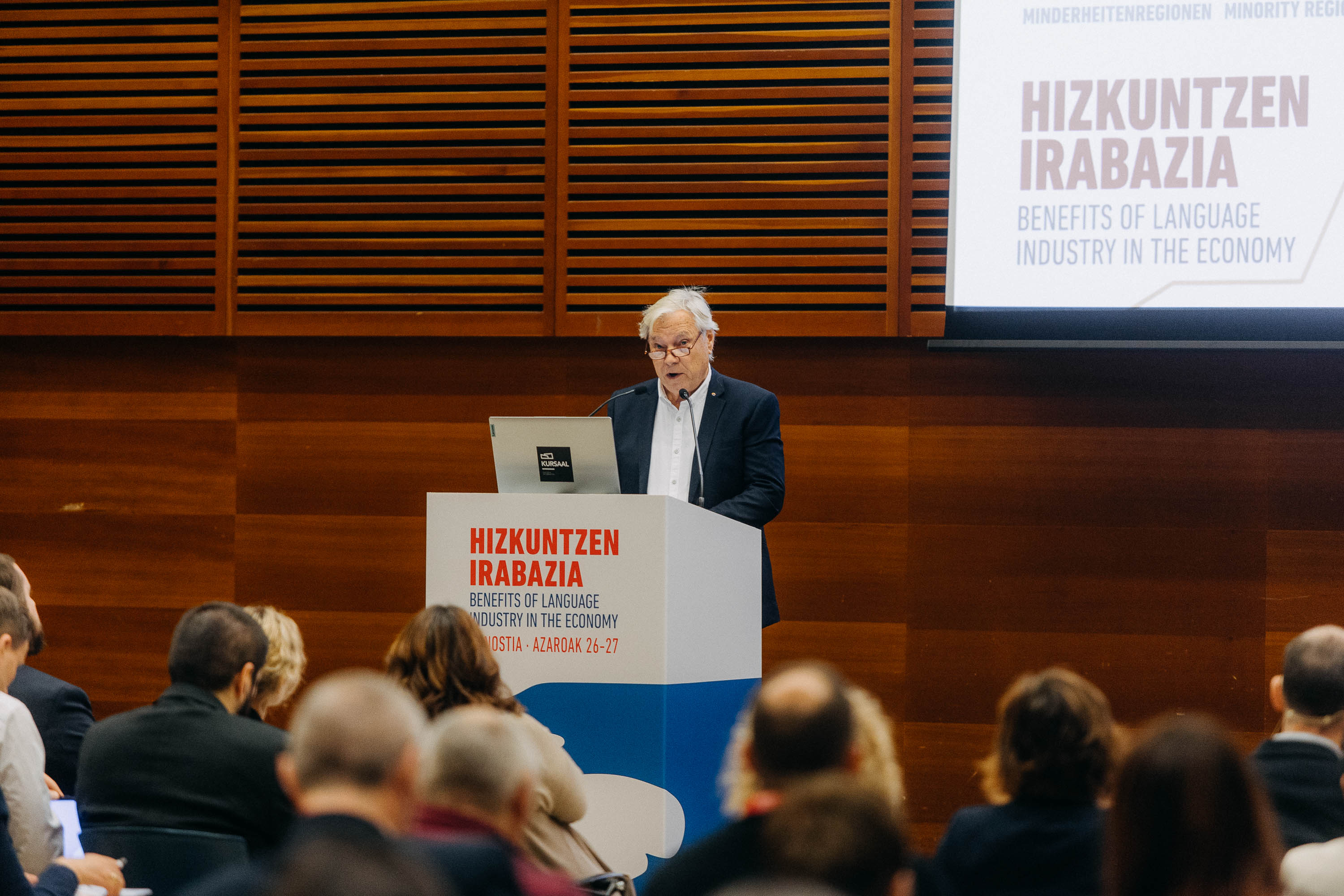
Oihana Arrieta from GAIA, the Association of Applied Knowledge and Technology Industries in the Basque Country, spoke about managing multilingualism in today’s technological landscape. She presented the Basque Country as an example of how integrating language and technology can drive innovation and strengthen minority languages.
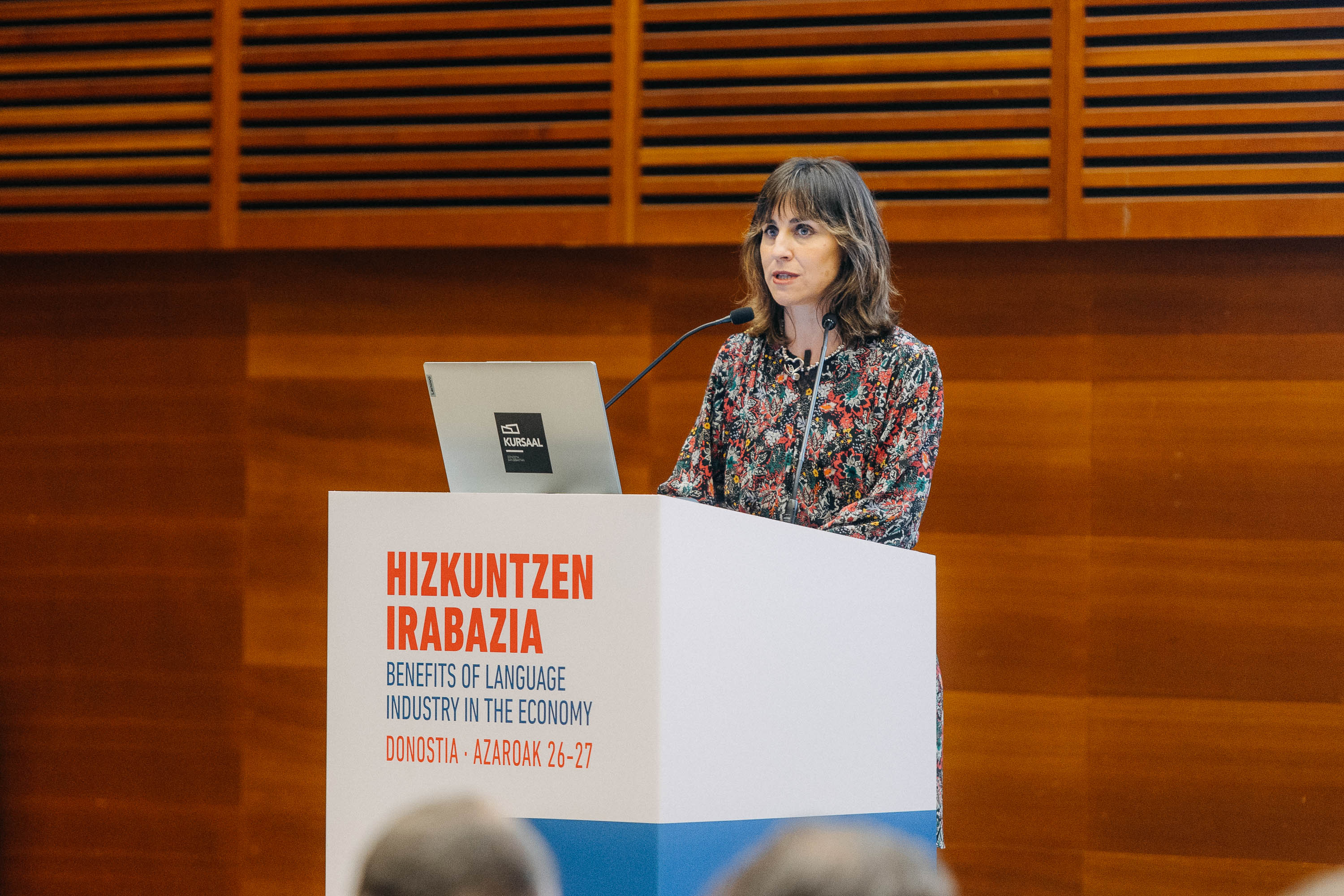
Anna Solé Mena, Senior Expert on Multilingualism at the European Commission, gave a keynote speech that focused on the EU’s commitment to support linguistic diversity and protect minority languages. She highlighted the role of EU initiatives, such as Erasmus+ and Horizon Europe, in supporting language learning and technological innovation. Anna Solé Mena also stressed the value of linguistic diversity for mobility, cooperation, and social cohesion, while at the same time mentioning that language use and education remain competencies of the EU member states, with the EU providing extra support through its projects and partnerships.
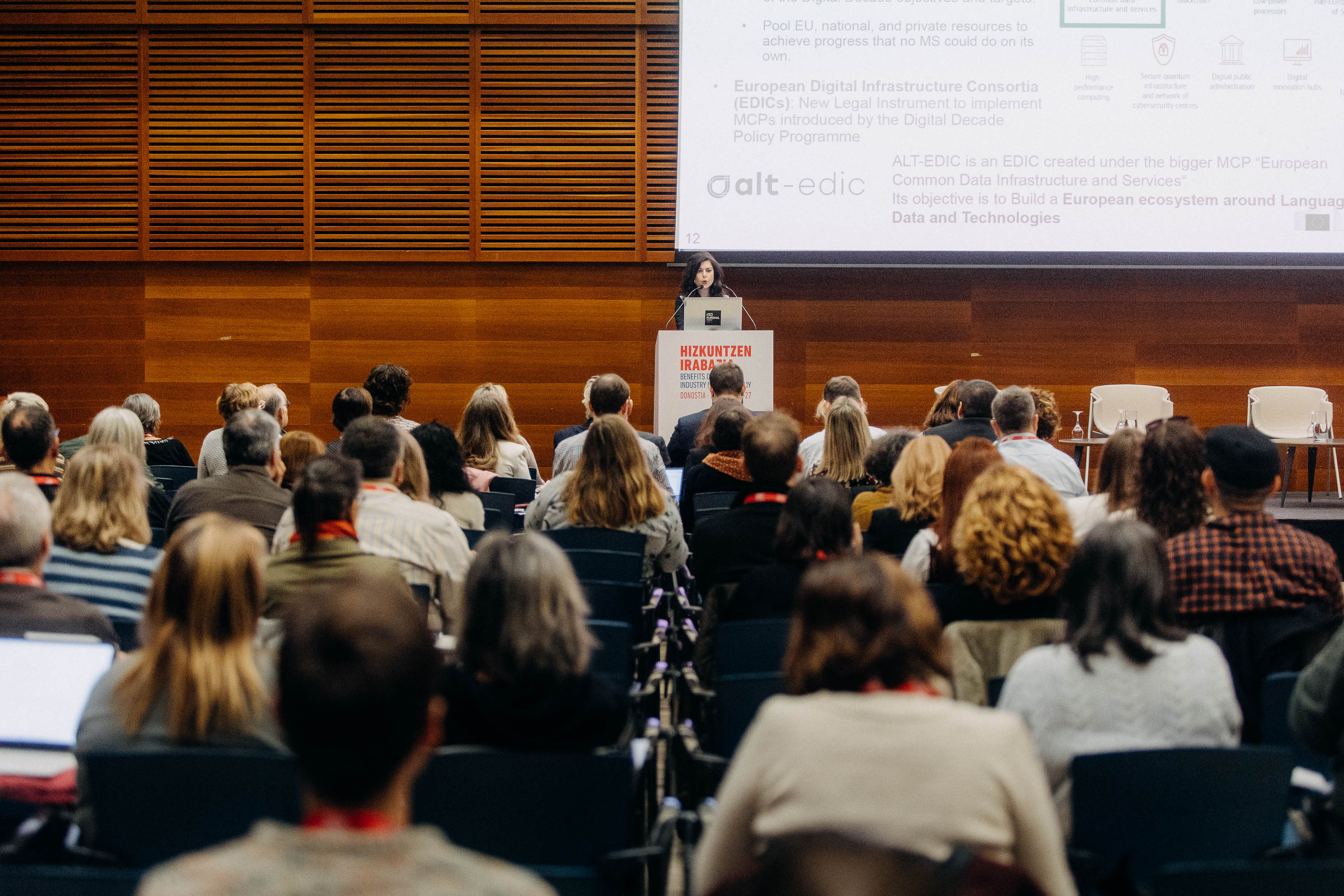
During the following panel discussions, the speakers from various minority regions in Europe presented relevant topics related to language and technology. A central focus was on creating essential technologies for minority languages, including projects on machine translation, speech recognition, conversational AI, and large language models (LLMs) to reduce the gap between widely spoken and less common languages.
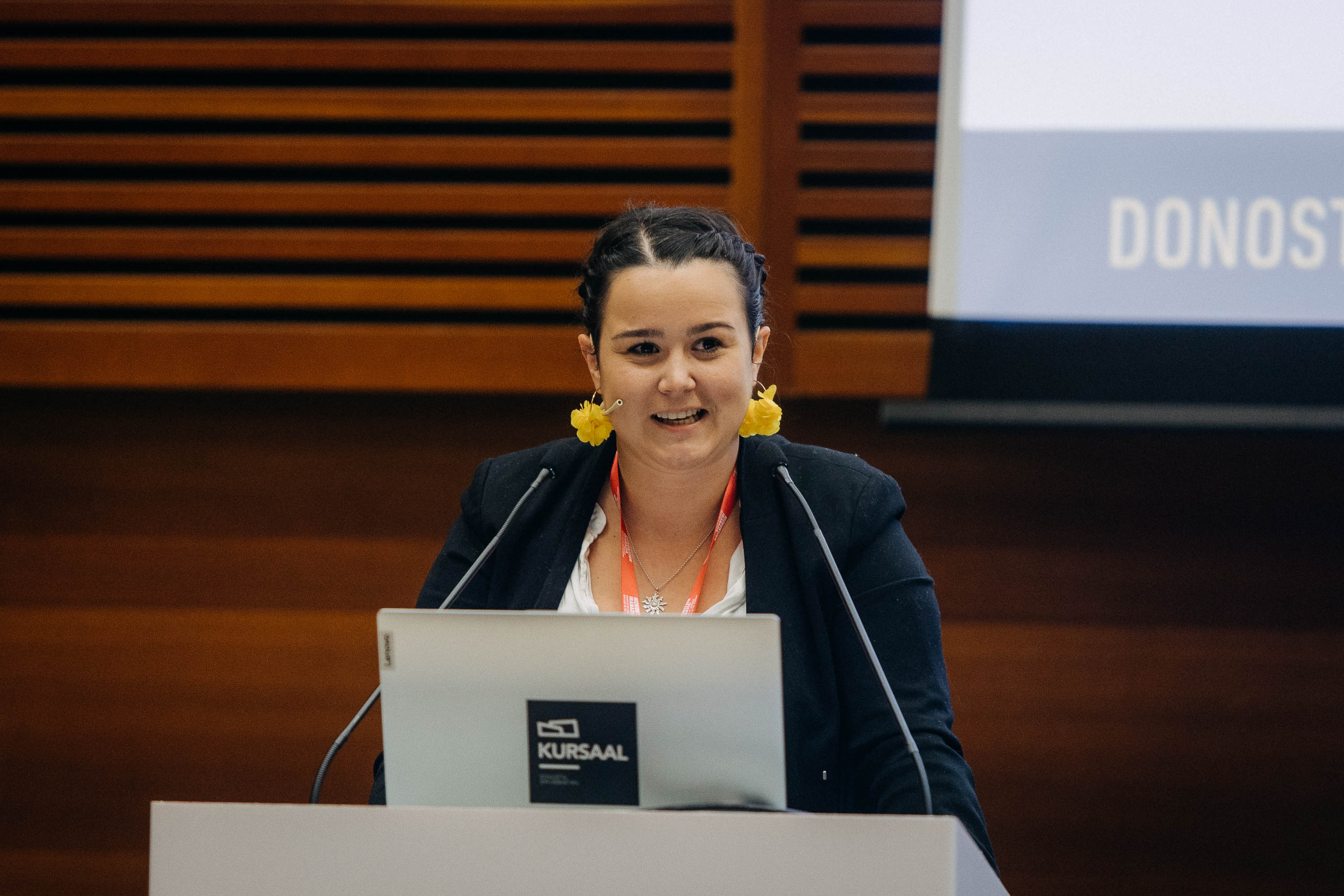

Moreover, the participants mentioned obstacles such as insufficient funding, limited data availability, and low visibility of minority languages on digital platforms. They also shared ideas on how public-private partnerships and open-source technologies can help address these issues. Generally, cooperation with the state was repeatedly underlined as an essential aspect to support and sustain initiatives for minority languages. Furthermore, the discussions highlighted the importance of ensuring that digital platforms and services are inclusive and accessible to all language groups.
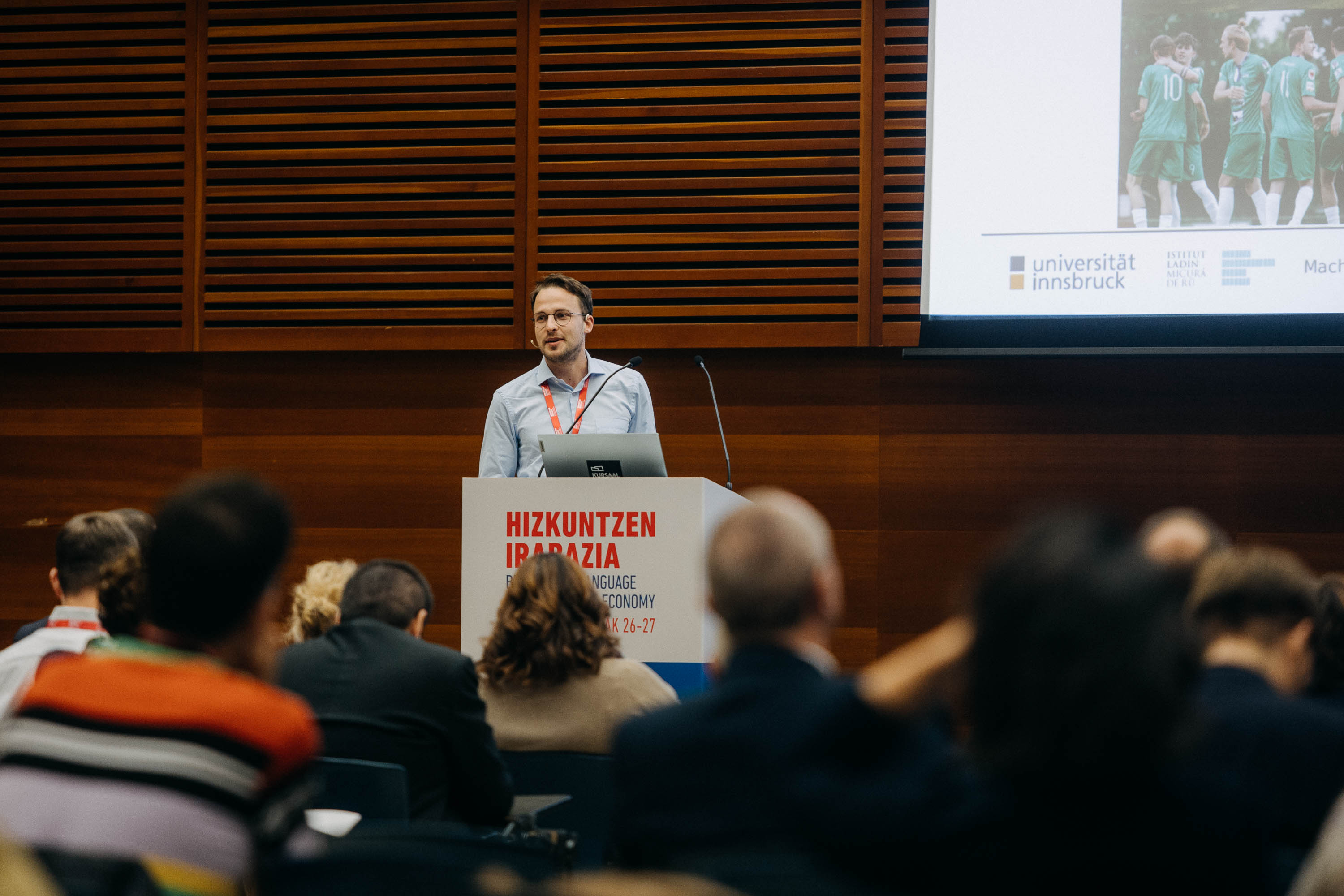
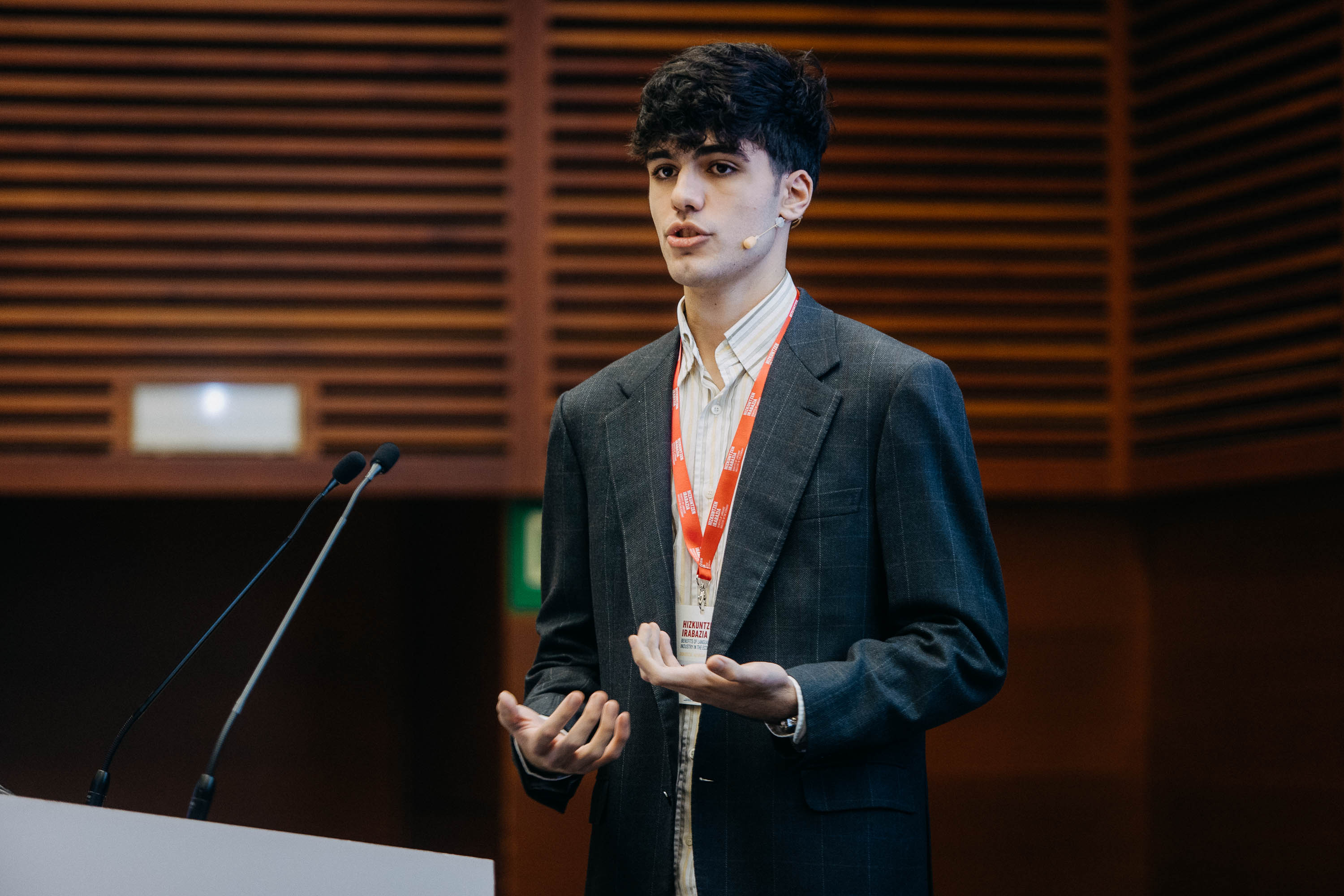
The speakers of the conference also explored the economic impact of minority languages and presented data showing how these languages contribute to employment and regional GDP through sectors like education, culture, and media.
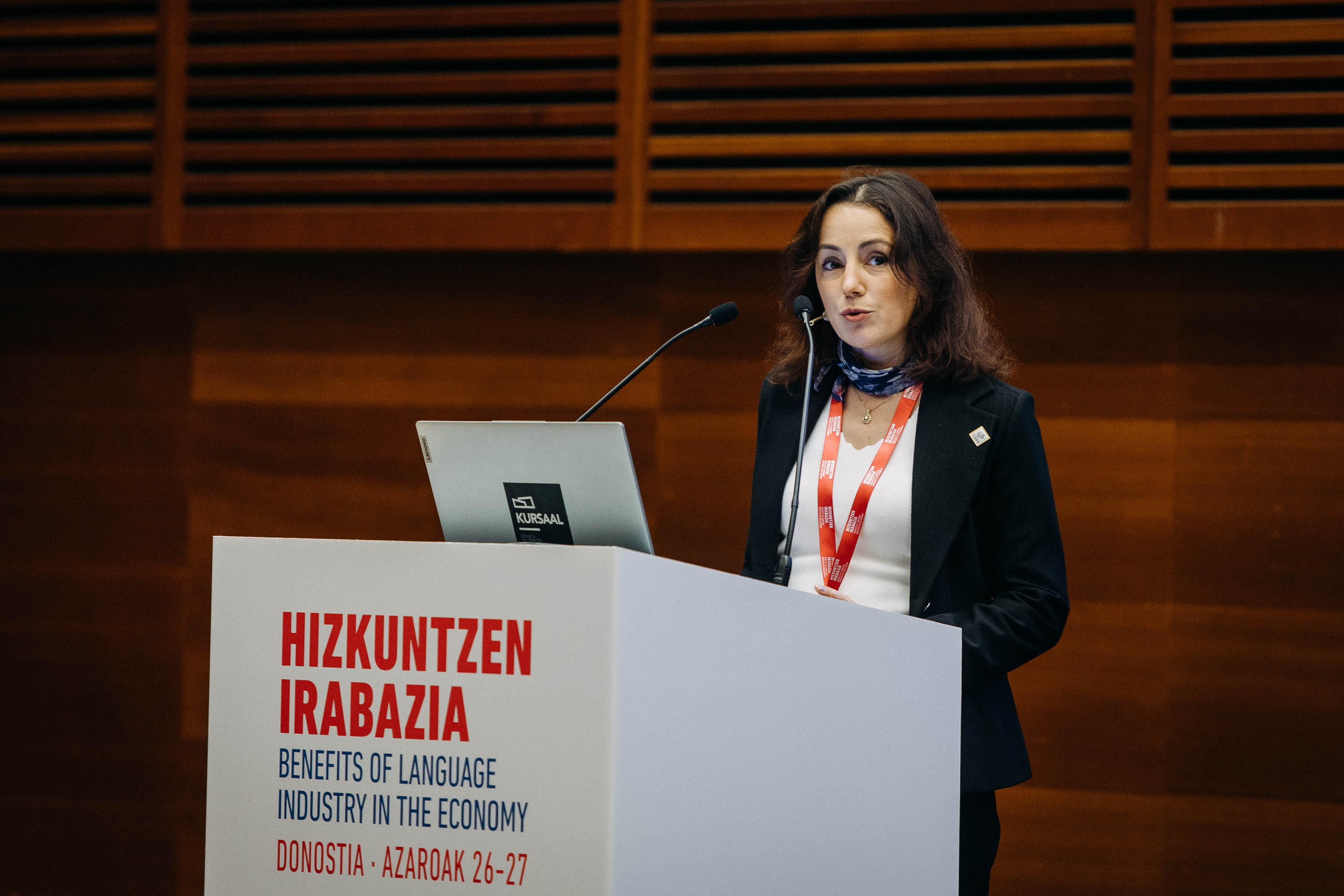

The Forum continued on 27 November with further discussions, focusing on audiovisuals, media, and the entertainment industry’s role in supporting minority languages. You can watch the recordings of the speeches and presentations on YouTube:
- 26. November – Morning Session: Watch recording
- 26. November – Afternoon Session: Watch recording
- 27. November – Morning Session: Watch recording
You can view the photo gallery of the 8th Forum of European Minority Regions here.
PRESS RELEASES
- FUEN calls for the inclusion of the Ladin language at the 2026 Winter Olympic Games
- FUEN Urges UN Special Rapporteur to Advocate for a Coherent EU Minority Protection Framework
- FUEN wishes you a peaceful Christmas season, restful days and a bright, hopeful start to the new year!
- FUEN calls on the EU to act over systematic ethnic-based land confiscations in Slovakia
- Women of Minorities conference in Budapest calls for structural change to ensure equal political participation of minority women
- FUEN President Olivia Schubert at UN Forum on Minority Issues in Geneva
- "Laboratory of Peace": 28th Seminar of Slavic Minorities held in European Capital of Culture Gorica/Gorizia
- Equality in Political Participation and Representation: Third “Women of Minorities” Conference to Be Held in Budapest
- FUEN Working Group on Education discusses challenges and future of minority schooling in Europe
- 28th Seminar of Slavic Minorities in Europe to take place in Gorica/Gorizia, Italy














